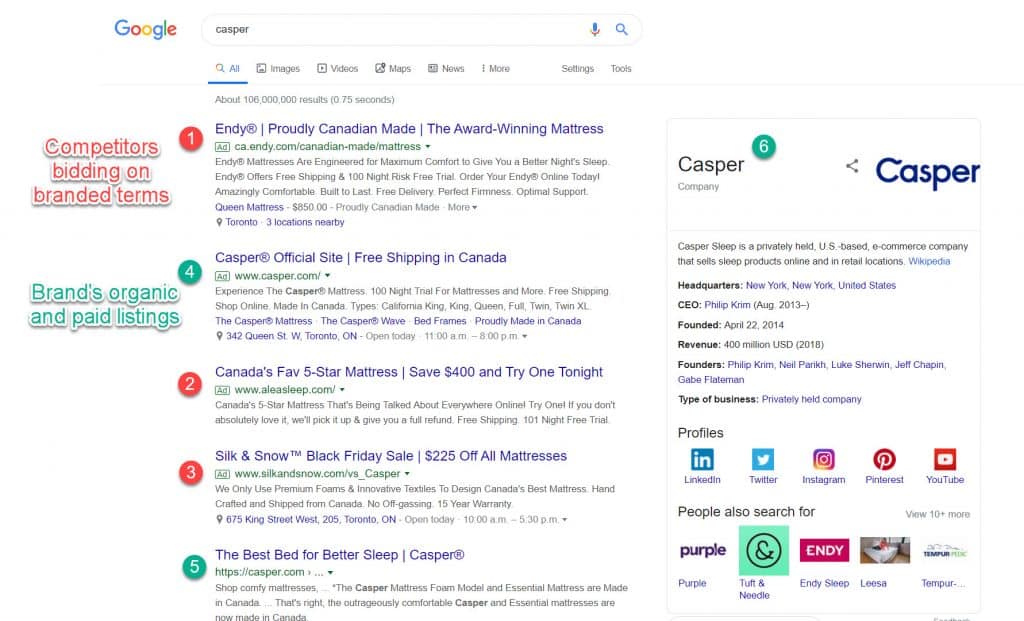SEO vs PPC in 2020
SEO and PPC often sound like polar opposites of one another, so which one is right for your business, which one should you use?
Both SEO and PPC represent marketing channels that work in different ways and deliver different results. To make a good decision it’s important to know the pros and cons of each.
SEO provides a long-term position on Google if you do things right and consistently.
SEO pros:
- SEO delivers long-term results. Once you rank high in Google, you can reap the rewards for a long time.
- It’s also cheaper because the initial investment in SEO is spread around over an extended period of time.
- SEO is excellent for targeting information-based keywords.
SEO cons:
- It takes time to get results from SEO. For a new website, it may take anywhere from 3-6 months to generate any serious amount of organic traffic.
- SEO requires not just the technical tweaks and optimizations but high-quality content as well.
- It won’t work well if you’re running a disruptive new business where people are completely unaware and aren’t even searching for you yet.
On the other hand, ads on Google work very well because they’re not intrusive and they feel native to the page. They seamlessly fit other organic results, you barely even notice that these are ads.
Other than that small badge that says ‘ad,’ they look completely the same as other organic listings.

With Google Ads, you can get to the top page within minutes. But as soon as you stop paying for them, your listing is going to disappear from Google results.
PPC pros:
- PPC delivers fast, immediate results. Once you enable your campaigns you will start generating clicks and traffic almost instantly.
- It also allows you precision targeting. You can set your campaigns to target only specific keywords, demographics, interests, etc.
- With PPC you can experiment and test at unprecedented speed. Because you can start seeing results from ads very fast, you have the ability to A/B test everything and optimize for maximum performance quickly.
- PPC works better for sales and product-related keywords.
PPC cons:
- Pay-per-click campaigns can often be prohibitively expensive. The competition for PPC is on a perpetual rise which causes the cost-per-click (CPC) to increase. And since you must pay for each click/visitor costs can get out of control very fast. Not only will you have to optimize your campaigns for max performance, but also figure out your backend offers if you want to run profitable PPC campaigns.
- You need to pay for each click, which makes it very expensive to scale. The biggest caveat to Google Ads is that they cost you money directly. Every click that goes to your page means you have to pay a certain amount.
Google Ads is a great way to occupy even more real-estate on SERP, provided your budget can afford advertising costs.
If that’s not the case, you should at least consider bidding on your own site name, so potential clicks that would go to your website are not hijacked by other businesses offering similar services as you.

But don’t think of PPC and SEO as marketing alternatives. They’re not!
Both are viable options that have a place in your overall digital marketing strategy. Where one falls short, the other one shines. They complement each other perfectly.
The best advice is to use SEO and PPC in tandem. Use PPC to raise awareness, promote your special limited time offer, and to ensure you own your branded search results page.
Optimize your site with SEO for long-term organic traffic. Then again use retargeting ads to bring back users to your site to finalize the purchase.
No comments:
Post a Comment